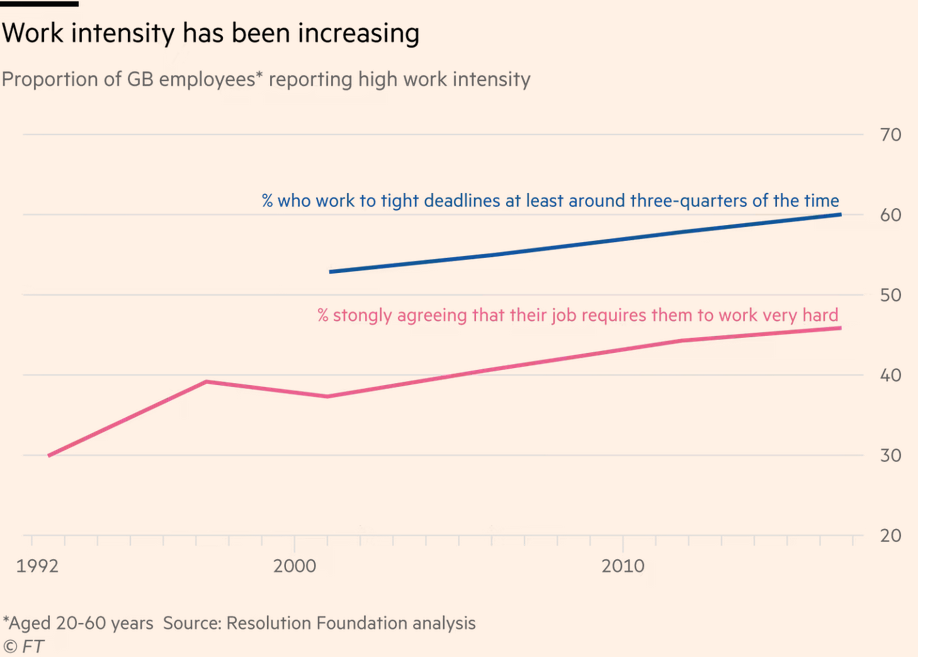September 20, 2022
Capital doesn't like labour market tightness
Here are three graphs freaking capital out right now. They outline the "shortage of labour" for the manufacturing and productive sectors.
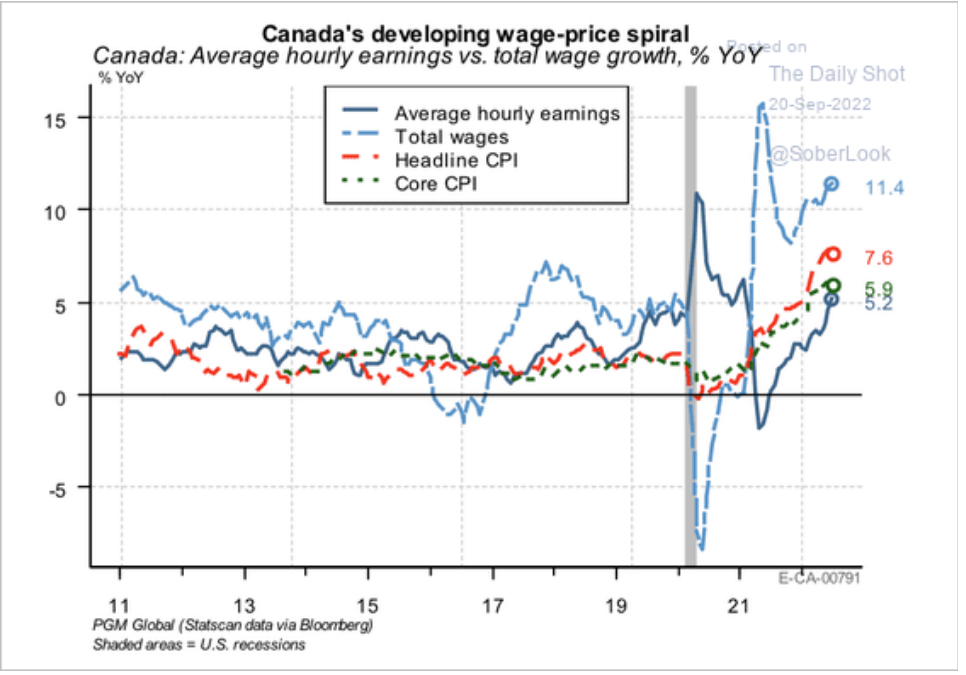
Notice the zero level of correlation between wages, hourly wages, and CPI. Notice how capital doesn't care that this is true and still writes "wage-price spiral" with the hedge "developing" in the title. At some level, you have to be impressed with the level of cognitive dissonance.
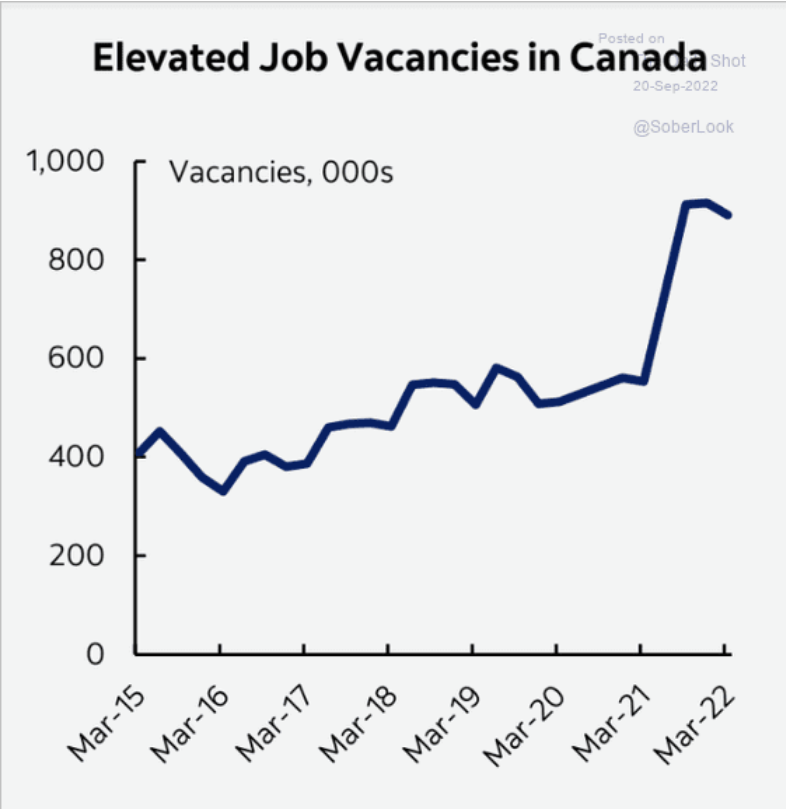
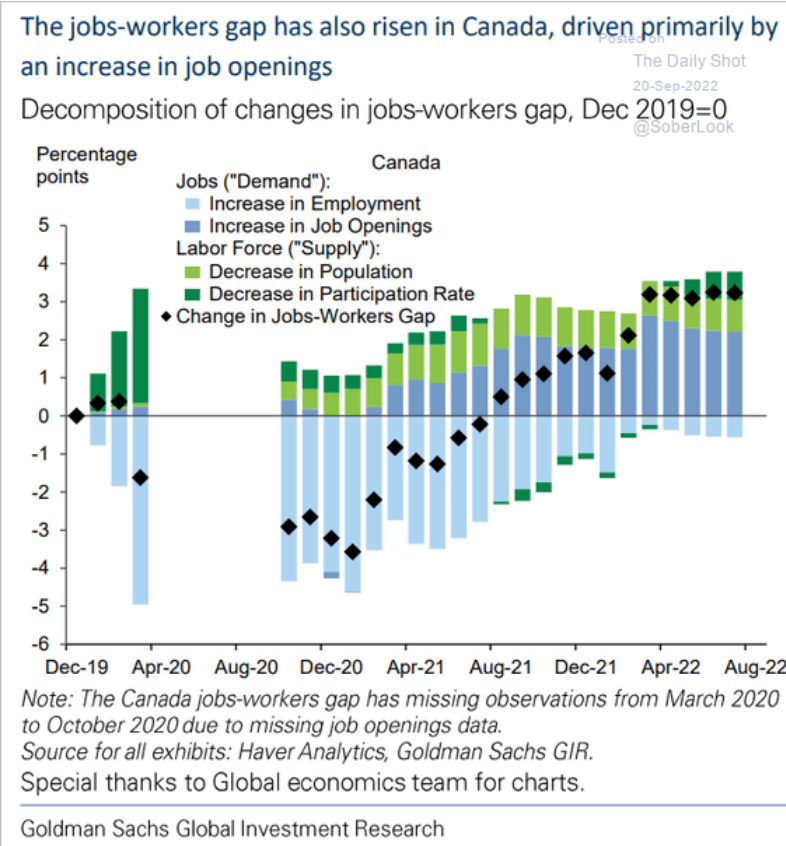
What they fail to mention is that there is a massive decline in labour force participation right now. That is partly because of retirements, but also because people have left the labour market because wages are not keeping up with costs of childcare and eldercare. So, people return to look after children or their parents.
The unemployment rate increased last month as people both left the labour force and/or started looking for work.
In August, more than 1 in 10 (11.9%) permanent employees were planning to leave their job within the next 12 months
Employment down among public-sector employees, little changed in the private sector
You can see this in the regular statistics of labour force participation:
- Participation rate among core-aged women in August at 84.4%.
- Compared to 91.7% for men.
- People planning on changing their jobs is still high as well (at 3.1% in August vs the normal ~1%)
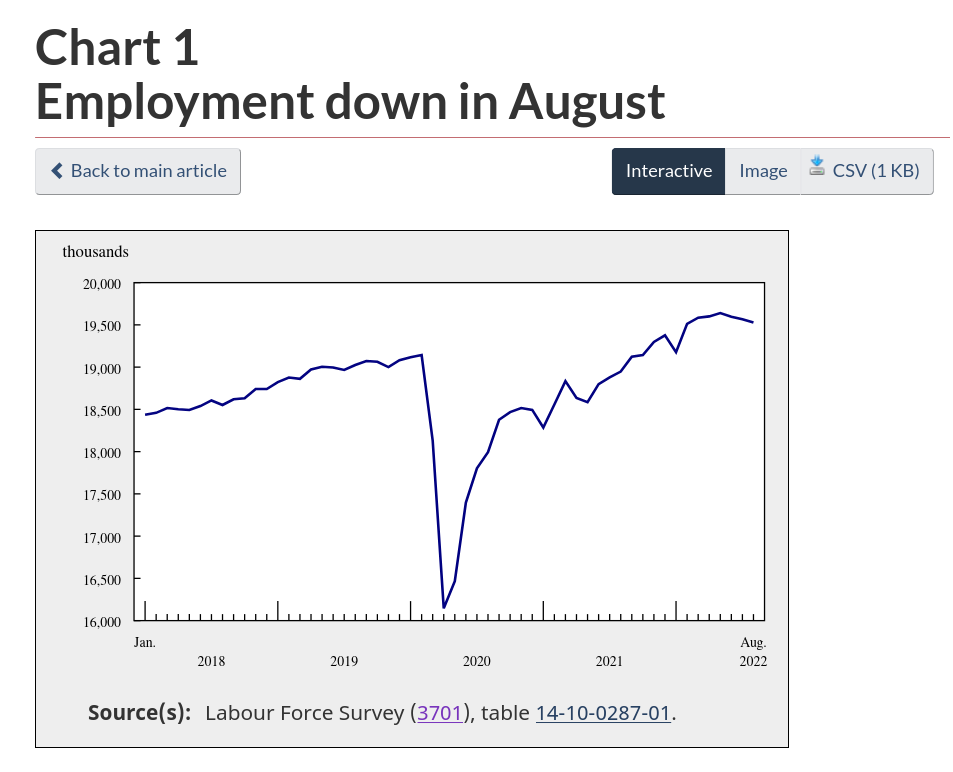
And, a growing amount of employment needs a university education. Still out of reach for so many.
The solutions are obvious, but capital sees it another way:
The Canadian Manufacturers and Exporters have produced a report demanding the government increase the number of workers they can choose from. The main goal? Drive down wages.
Here is an infomercial for CME done by the Visual Capitalist:
Consumer Price Index in Canada in August
In August, the average hourly wages rose 5.4% on a year-over-year basis, meaning that, on average, prices rose faster than wages.
 and CPI excluding gasoline.png)
Filled and vacant positions:
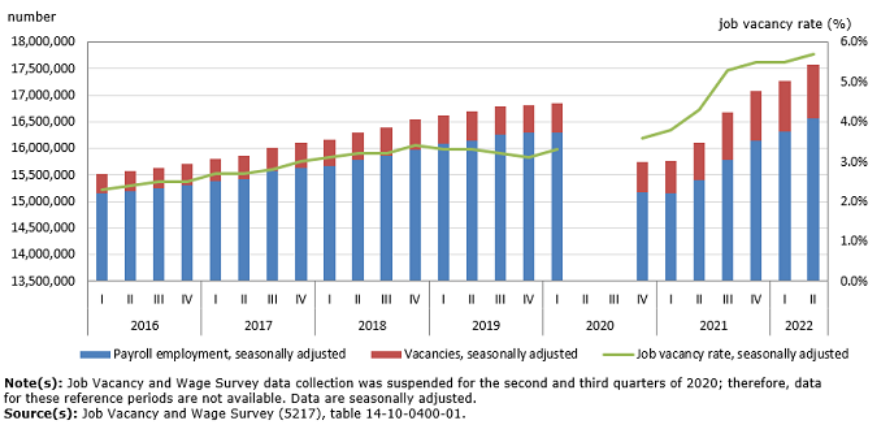
Overall, average offered hourly wages increased 5.3% to $24.05 in the second quarter on a year-over-year basis. Over the same period, average hourly wages of all employees (measured in the LFS) rose 4.1%. The Consumer Price Index (CPI) increased 7.5% in the second quarter, compared with the second quarter of 2021.
On a year-over-year basis, offered wages increased more than the CPI in the second quarter in five sectors, including professional, scientific and technical services (+11.3% to $37.05) and wholesale trade (+10.6% to $26.10). In comparison, increases in offered wages were lower than the CPI in the remaining sectors including retail trade (+5.7% to $17.60); construction (+5.2% to $27.30); and health care and social assistance (+3.6% to $25.85). The sectors for which growth in offered hourly wages was on par with or below the CPI accounted for 82.9% of total vacancies in the second quarter of 2022. (StatCan)
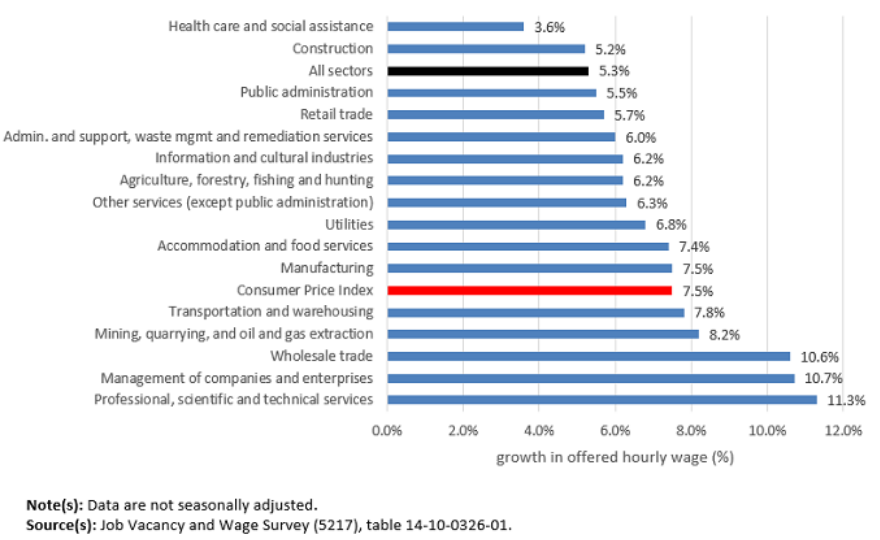
Truss hates workers
As if we didn't know that, but here is an excerpt:
“Once they enter the workplace, the British are among the worst idlers in the world,” the book says. “We work among the lowest hours, we retire early and our productivity is poor. Whereas Indian children aspire to be doctors or businessmen, the British are more interested in football and pop music.”
Given that two of the book’s authors, Liz Truss and Kwasi Kwarteng, are now the country’s prime minister and chancellor respectively, it is worth revisiting this characterisation of the workforce. (Sarah O'Connor – FT)
First, is it true? No. Labour productivity and employment hours ar equivalent across most of the industrialized West.
Is it racist? Yes.
Would it matter if they were? No. Because workers in capitalist countries do not have a say over work until they unionize. And even then there are limits to "idleness".
Tories are the worst.
